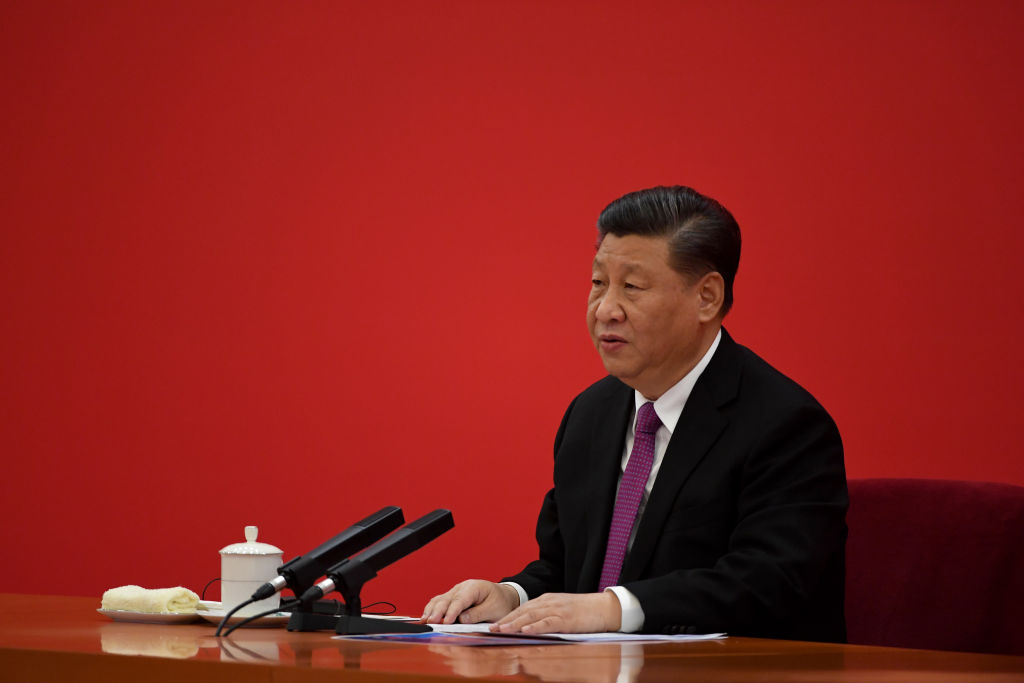If Donald Trump wanted to deliver a seasonal gift to his ‘good friend’ Xi Jinping, the ‘Phase One’ trade deal reached this weekend fits the bill pretty well. From the viewpoint of the Beijing leadership, it vindicates the Chinese refusal to budge during the long months of trade negotiations despite the threat of escalating duties. What has resulted is less the kind of overall trade agreement originally aimed at by the Trump administration and feared by China as interference in its economy — and more of a purchase agreement accompanied by reduced tariffs.The agreement to purchase American agricultural products — by some reports to the tune of $50 billion, though that may be beyond the capacity of US farmers — may be higher than Beijing wanted. But is more than compensated for by the cancelation of a new swathe of US tariffs on goods including smartphones, toys and clothing plus the reported agreement by the Trump administration to scale back some existing measures. China’s undertaking to increase protection of intellectual property rights and further open up its financial sector are in line with existing policies in the last major state ruled by a Communist party. These are part of its drive to make the economy more efficient and attract foreign capital at a time when growth is slowing and major changes are needed to reduce the excessive leverage that has underpinned past expansion.  Equally important, the Xi administration has not had to accept any modification of its state-led economic model while the ‘snapback’ provision, by which the US could re-instate tariffs if China misbehaves, falls well short of the kind of monitoring mechanisms envisaged at one point by the US negotiators. Beijing must, therefore, be comforted that it was correct in its decision to stand its ground after the breakdown in talks when it sought major modifications in an outline agreement in May. Instead of bowing to the US, the Chinese calculated that the electoral damage to the president of rising consumer prices from tariffs and the negative effect on the stock market would come to their aid — and they appear to have been correct. That does not, of course, mean that the agreement marks the end of the trade war. It is, at best, a truce. A much wider conflict will continue which has taken shape since Donald Trump imposed the first tariffs on goods from the People’s Republic in March, 2018. Rivalry in technology, for one thing, threatens to be considerably more serious than the mutual slapping of duties on goods. The era of ‘constructive engagement’ has been replaced by one of ‘strategic rivalry’. China is digging in a long-running confrontation — Xi told Communist party cadres last month to prepare for a lengthy struggle and says his country faces a new Long March. In this context, gaining time is all important to provide space for China seeks to re-shape its economy and step up its drive into new technology. The leadership in Beijing faces bigger economic problems than the trade war, not to mention the political challenge in Hong Kong, international criticism of its mass detention of Uighur Muslims in the Western territory of Xinjiang and the likely re-election of the autonomy-minded president in Taiwan next month. Still, Xi and his colleagues will be pleased to have reached a truce without giving any major ground — and to have achieved at least the first stage of their goal of seeing tariffs rolled back. Now, they will seek to take their time on the more complex ‘Phase Two’, improve their economy — and wait to see what happens electorally across the Pacific next November.Jonathan Fenby’s latest book is Crucible: The Year that Shaped Our World. He is the author of The Penguin History of Modern China and Will China Dominate the 21st Century?
Equally important, the Xi administration has not had to accept any modification of its state-led economic model while the ‘snapback’ provision, by which the US could re-instate tariffs if China misbehaves, falls well short of the kind of monitoring mechanisms envisaged at one point by the US negotiators. Beijing must, therefore, be comforted that it was correct in its decision to stand its ground after the breakdown in talks when it sought major modifications in an outline agreement in May. Instead of bowing to the US, the Chinese calculated that the electoral damage to the president of rising consumer prices from tariffs and the negative effect on the stock market would come to their aid — and they appear to have been correct. That does not, of course, mean that the agreement marks the end of the trade war. It is, at best, a truce. A much wider conflict will continue which has taken shape since Donald Trump imposed the first tariffs on goods from the People’s Republic in March, 2018. Rivalry in technology, for one thing, threatens to be considerably more serious than the mutual slapping of duties on goods. The era of ‘constructive engagement’ has been replaced by one of ‘strategic rivalry’. China is digging in a long-running confrontation — Xi told Communist party cadres last month to prepare for a lengthy struggle and says his country faces a new Long March. In this context, gaining time is all important to provide space for China seeks to re-shape its economy and step up its drive into new technology. The leadership in Beijing faces bigger economic problems than the trade war, not to mention the political challenge in Hong Kong, international criticism of its mass detention of Uighur Muslims in the Western territory of Xinjiang and the likely re-election of the autonomy-minded president in Taiwan next month. Still, Xi and his colleagues will be pleased to have reached a truce without giving any major ground — and to have achieved at least the first stage of their goal of seeing tariffs rolled back. Now, they will seek to take their time on the more complex ‘Phase Two’, improve their economy — and wait to see what happens electorally across the Pacific next November.Jonathan Fenby’s latest book is Crucible: The Year that Shaped Our World. He is the author of The Penguin History of Modern China and Will China Dominate the 21st Century?
The Chinese trade deal is a Christmas gift to Xi
The agreement doesn’t mark the end of the trade war. It is, at best, a truce

Xi Jinping
If Donald Trump wanted to deliver a seasonal gift to his ‘good friend’ Xi Jinping, the ‘Phase One’ trade deal reached this weekend fits the bill pretty well. From the viewpoint of the Beijing leadership, it vindicates the Chinese refusal to budge during the long months of trade negotiations despite the threat of escalating duties. What has resulted is less the kind of overall trade agreement originally aimed at by the Trump administration and feared by China as interference in its economy — and more of a purchase agreement accompanied by reduced tariffs.The agreement to…

















